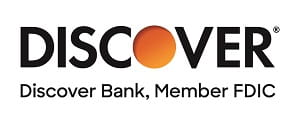Searching for a job can be tough. Besides crafting your resume, writing cover letters, and filling out applications, you'll also need to go through interviews with different employers. However, there will come a moment when you finally receive that long-awaited job offer letter. When you do, it's time to celebrate and give yourself a pat on the back. But after the excitement settles, it's crucial to carefully review the offer letter to ensure all important details are correct. This step is especially important if you're new to the workforce or have little experience. Make sure to do this before you sign on the dotted line.
Check out the following nine items that should always be included in a formal offer letter. If any of this information is missing, it’s a good idea to reach out to human resources or the hiring manager in order to gain clarification.
1. An Acknowledgment of Confidential Information
In an offer letter, one of the initial items is an acknowledgment of confidential information. This is because the letter typically includes personal identifying details such as name, address, and phone number, along with privileged information about the job and the hiring company. The letter provides a cautionary notice that it should only be read by the recipient, which is you in this case.
2. Details on the Compensation Package
The offer letter serves as an official confirmation of the annualized salary and benefits that the company is offering. You should review the letter to confirm that this matches the base salary and benefits that were mentioned in the job posting or your interview. If the original job posting states that the position includes health insurance, for example, but your offer letter doesn’t mention this, it’s important to follow up with the company before signing the offer.
3. A Rundown of Important Dates
Your offer letter should also include a comprehensive rundown of all the important dates that you need to keep track of. This will typically include your tentative start date, a deadline for responding to the job offer, and dates for any other pre-employment tasks that you may need to complete in order to accept the job. If you have trouble remembering important dates, or if you simply want a convenient reminder, you should enter these dates into your phone or smart device.
4. An Overview of the Company Culture
A well-written job offer will go beyond the bare minimum and provide more information than just the job title and base salary. It should also include a helpful description of the culture, policies, and values that you can expect from the company. Even if a job suits your career goals, offers a great salary, and matches your qualifications, it might not be the best fit. An offer letter’s overview of its company culture can help you decide whether or not it’s the right job for you.
5. A Statement Regarding Employment Terms
You also need to know the specific terms of your employment. In some states, for example, it is required by law that an employer notify new hires that they are entering an at-will employment agreement. This means that either party — the employer or the employee — can leave at any time and for any reason. If this is the case, your offer letter should explicitly state this fact. Other terms of your employment — such as the position’s minimum weekly hours should be explained as well.
6. Any Applicable Contingencies
In some cases, an employer will send an offer letter that includes contingencies. These contingencies can vary widely based on the nature of the job. Many positions in education, for example, will hire candidates with a contingency that they complete teaching licensure. Similarly, a company may send you an offer letter that indicates your employment is contingent upon passing a specific test or successfully completing training.
7. Request for a Reference Check
It’s also common for employers to offer employment that’s contingent upon a reference check. This means that the company will hire you if you furnish references and if those references are positive. In some states, though, it is required by law that an employer explicitly obtain your consent before contacting your references. In this case, the offer letter will likely include a consent form that you will need to sign and submit.
8. Notice of a Background Check
Because it includes confidential information, employers may also be required by law to inform you that they are conducting a background check. Many companies perform background checks on potential employees, but laws vary regarding the extent that an employer can use a background check in hiring decisions. If your offer letter includes a notice of a pending background check, this is likely another contingency of employment.
9. Important Contact Information
Finally, your offer letter should include contact information for human resources so that you can ask questions and respond to the offer. The letter may also include contact information for the position's hiring manager. If you have any questions about the job or want to discuss the salary, it’s important to reach out before signing the offer. You will have very limited negotiation power once you’ve agreed to the terms of employment that are outlined in the letter. This is why it’s important to read the document carefully before you proceed.
Protect the Confidential Information in Your Job Offer Letter
There’s nothing more exciting than getting a job offer letter and finally putting an end to your job search. Sometimes, though, the letter can include confidential information that brings up even more questions than it answers. When this happens, you need to review the letter, identify the missing information, and reach out to the company to clarify these issues. Once you’ve done so, you should feel comfortable and confident signing the offer.











